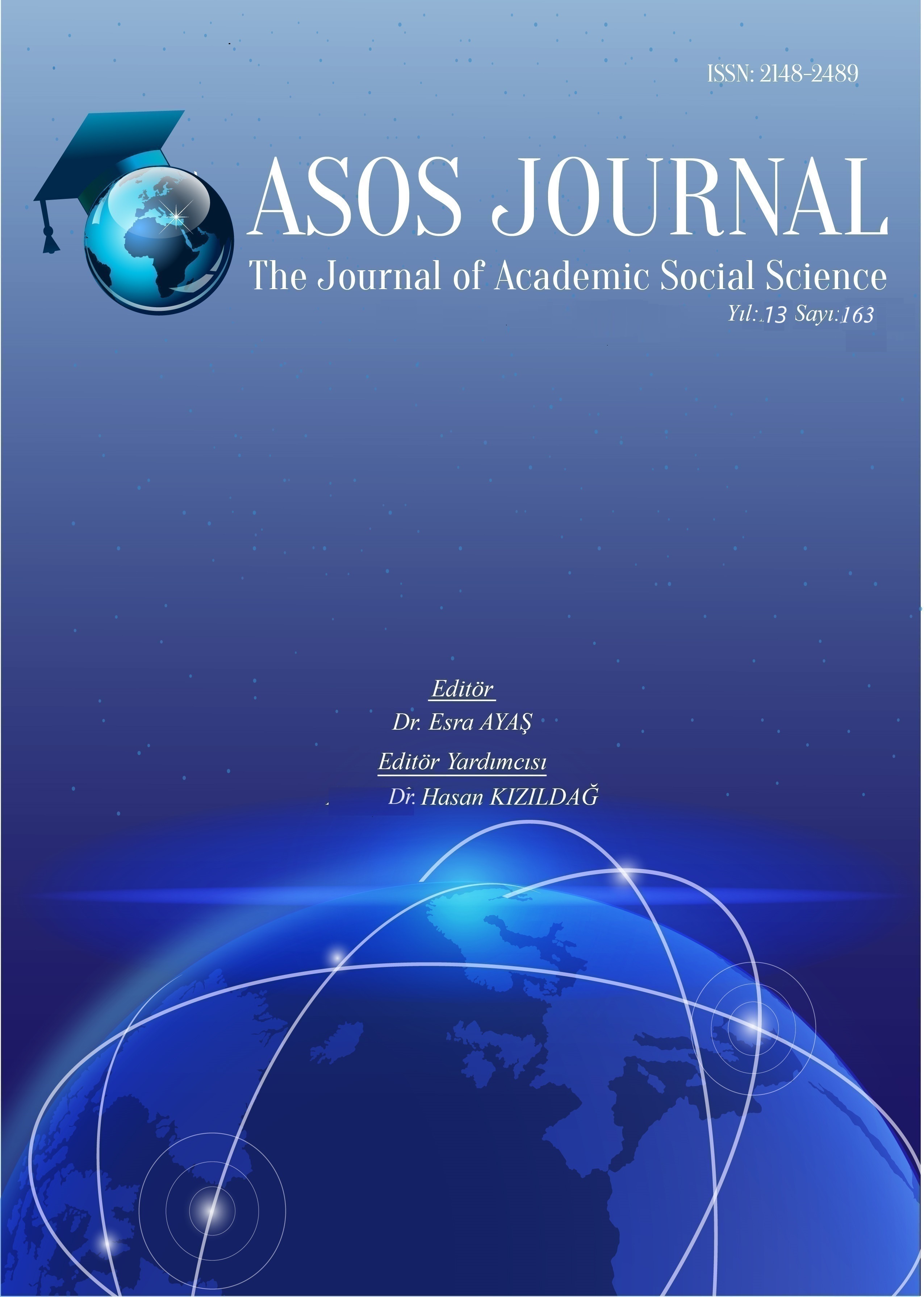E TWINNING PROJELERİNİN 11/18 YAŞ GRUBU ÖĞRENCİLERİN MOTİVASYON VE SOSYAL BECERİLERİ ÜZERİNDEKİ ETKİSİ: ŞANLIURFA İLİ ÖRNEĞİ
Author :
Abstract
Bu araştırmanın amacı farklı bilişsel düzeye sahip ortaokul ve lise öğrencilerinin eTwinning uygulaması üzerindeki projelere dâhil olmasıyla derslere aktif katılımlarındaki değişim, Web 2.0 araçlarını öğrenip kullanmaları ve dolayısıyla derslere karşı tutum/motivasyonlarına etkisini, sosyal becerilerine katkısını gözlemlemektir. Bu amacı gerçekleştirmek için Şanlıurfa ilindeki 11-18 yaş arası ortaokul ve lise öğrencilerinden oluşan 82 kişilik gruba eTwinning Öğrenci Motivasyonu ve Sosyal Beceri Ölçeği uygulanmıştır. Ölçeğin iç tutarlılık ve güvenirliğini belirlemek adına Cronbach Alfa (α) katsayısı yöntemi işe koşulmuş, sonuçlar SPSS programı ile analiz edilip tablolaştırılmıştır. Deneysel olmayan nicel tarama modeli kullanılarak yapılan bu araştırmanın sonucunda ankete katılan öğrencilerin motivasyon ve sosyal beceri düzeyleri yüksek ve çok yüksek olarak saptanmış fakat öğrencilerin projede birlikte yer aldıkları arkadaşları ile olan iletişimde ve yeni arkadaşlar edinmede diğer sosyal becerilere göre daha geri kaldığı görülmüştür. Genel sonuca bakıldığında veriler arasında anlamlı bir farklılık görülmemiştir.
Keywords
Abstract
The aim of this research is to observe the change in the active participation of secondary and high school students at different cognitive levels, their participation in the projects on the eTwinning application, their learning and use of Web 2.0 tools, and thus the effect on their attitudes/motivation towards the lessons and their contribution to their social skills. In order to achieve this aim, the eTwinning Student Motivation and Social Skills Scale was applied to a group of 82 people consisting of middle and high school students aged 11-18 in Şanlıurfa. In order to determine the internal consistency and reliability of the scale, the Cronbach Alpha (α) coefficient method was used, and the results were analyzed and tabulated with the SPSS program. As a result of this research, which was carried out using a non-experimental quantitative survey model, the motivation and social skill levels of the students participating in the survey were found to be high and very high, but it was seen that the students were behind in communication with their friends in the project and in making new friends compared to other social skills. Considering the overall result, no significant difference was observed between the data.





